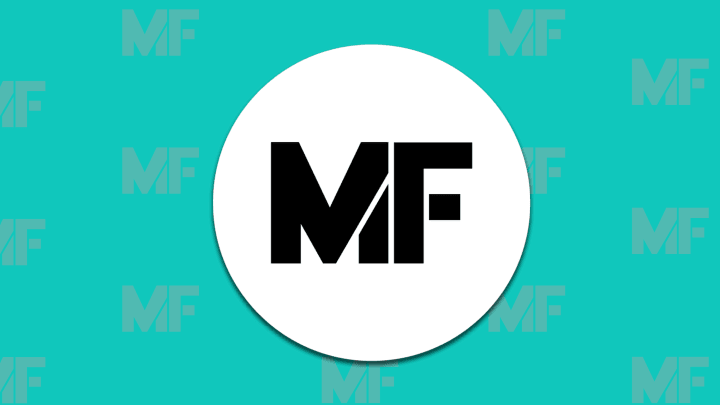So, the strange thing about the first time I met John Green—at a Birmingham house party in 2002—is that at the time, I was kind of a bigger deal than he was. Which is not to say that I am, or ever have been, a “big deal.” (For clarification: I’m not/haven’t ever been.) It’s just that, well, that should put things in perspective.
In 2002, John Green was this guy working for Booklist, who said he was going to write a book. I’ve met a lot of people who say they’re going to write a book, and more often than not, they don’t. Meanwhile, I’d lucked into starting a magazine with my college friends. A very small magazine, called mental_floss, that at that time maybe 400 people subscribed to (from what we could tell, the demographic was my mom, the other co-founders’ moms, and 396 of our moms’ friends).
But in the last few months our magazine had gotten some national press. Publishers were talking to us about book deals. We were starting to bring more talent on board, including our editor Neely Harris. And we’d just set up shop in our first real workspace—a former dentist’s office that had free Muzak as one of its perks. (Thinking about it now, I’m not sure the Muzak was supposed to be a perk; I think the previous tenants just forgot to stop the service.)
That night, I was at Neely’s house party, doing a terrible job of trying to mingle, when she pulled me over to meet this high school friend of hers who she warned was weird, but also hilarious and kind of a genius. And then I got the John Green experience. As he fumbled to take out a few pieces of nicotine gum—which I learned that night are maddeningly hard to free from the plastic—John proceeded to keep me captivated. He told me how Booklist had taught him to read quickly, and how he was fast becoming an expert on reviewing books about conjoined twins. He told me he wanted to write young adult books, a genre I’d never heard of, and when I excitedly asked if he meant like Roald Dahl, he politely responded no. He told me about the hippie boarding school he, and Neely, and all these other talented young people like Daniel Alarcon had gone to—where kids could take classes like “Drawing to Music,” and where instead of detentions, a student committee doled out gardening duties as punishment. He told me a hilariously inappropriate story that later ended up in his book Looking for Alaska, which I wasn’t sure was true or not, but I loved hearing anyway. He told me about being a divinity school drop-out (and then he listed other famous drop-outs, like Casanova and Michael Moore). When someone’s cell phone started ringing, he let me know it was probably his because it was a Super Mario Bros. ringtone. And he told me his philosophy on lying—that sometimes he liked to lie a little, just to keep his storytelling skills sharp.
I liked him immediately. The John Green of that night wasn’t the YA rockstar/internet phenom everyone knows now. The 2014 model is more confident, not a Nicorette chewer, a better speaker, and more likely to beat me in a footrace, among other things. But he was basically the same guy you see today—a whip-smart storyteller who couldn’t have been funnier or nicer. Neely suggested that with John’s interest in religious studies, we should ask him to write the cover story for our next issue, Saints and Sinners, which he did. And once I read his writing, I just kept booking him for projects.
Over the next few years, he continued to dazzle us. He helped me write and brainstorm the magazine’s front of book and cover stories. He pulled incredibly talented people into the fold, including Ransom Riggs and Hank Green. When Harper Collins asked us to churn out four mental_floss books in a single year, he hit every deadline. He sat in a room, with a box of Cheez-Its, and he knocked the books out. At the time, he was also writing An Abundance of Katherines, which made the feat even more impressive.
In those years, I edited John’s work for mental_floss. And while we discussed business on phone calls and admired each other’s terrible jokes, we rarely met in person. But he’s always been encouraging. Once, when I was going through a rough patch, he reminded me how good we have it. The words aren’t quite right, but he said something like, “We’re lucky. People actually take time out of their days to write us and tell us that we made their favorite something. Their favorite book. Their favorite magazine. What other line of work do you get that sort of affirmation?” It might sound vain, or corny, but it’s true. I’ve been incredibly lucky—to stumble into a job I love; to have found a fanbase that gives us so much support; to get to keep learning for a living. And of course, one of the best parts of my job is all the talented people I get to work with. From the beginning, we all expected John’s star to rise. We just knew it would happen. And when it did, we couldn’t help but root for his success. But when he was working here, teaching us how to write better and inspiring us to think bigger, it was also just nice to be in the same orbit.
